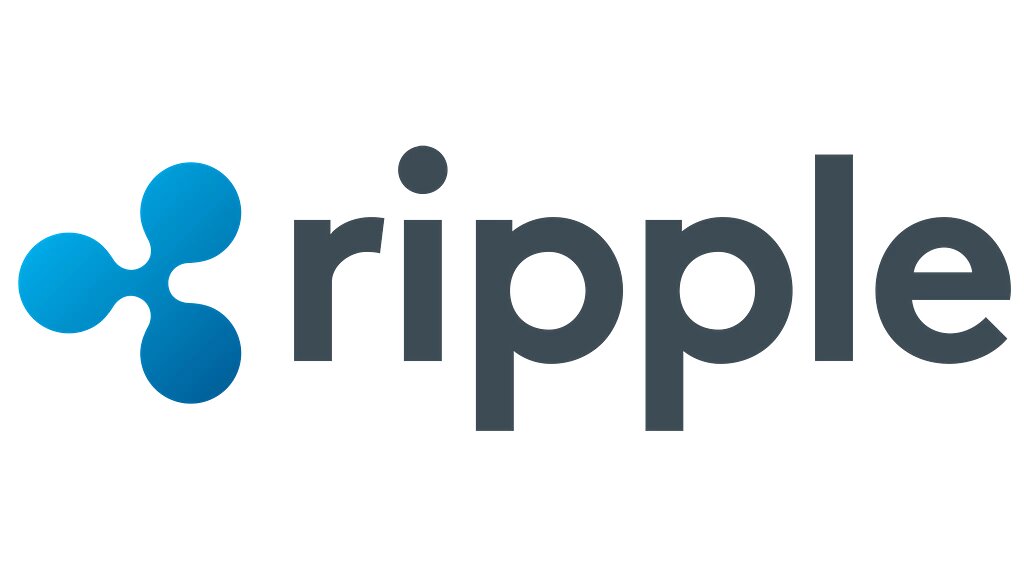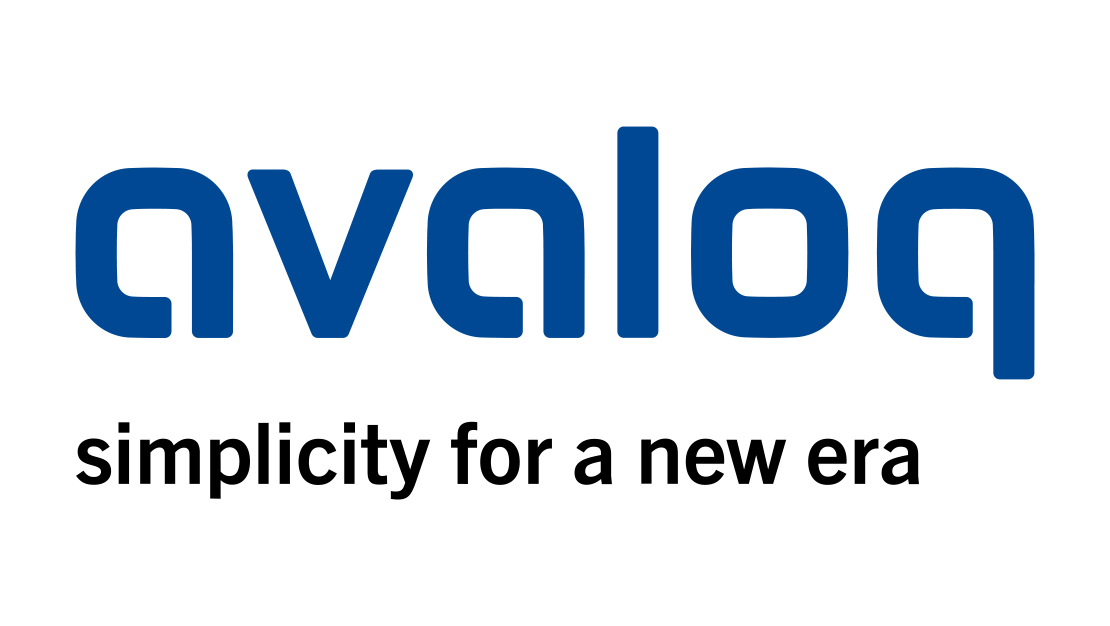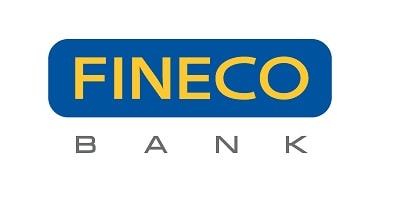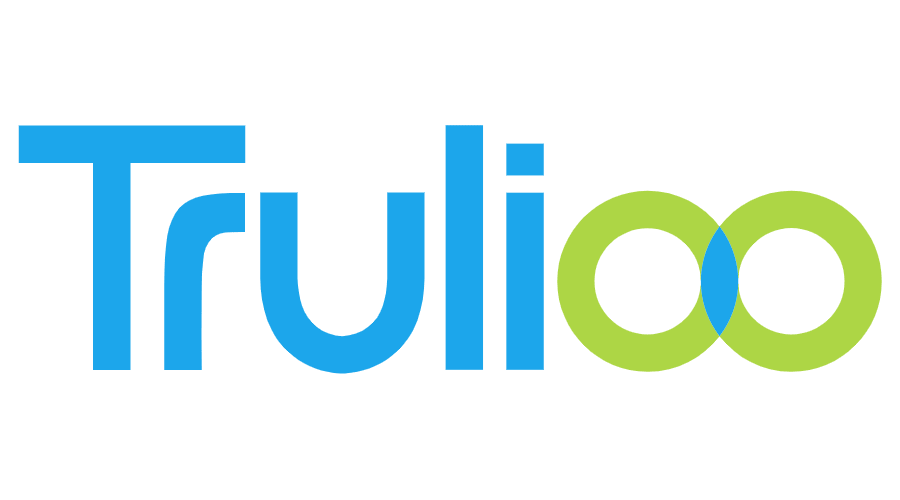Published
- 04:00 am

Among the founding ideas for Ripple is to expand global financial inclusion for everyone—not just those in wealthy nations. The existing financial system is antiquated, broken and poorly designed to serve the needs of those in emerging markets, which are too often overlooked by financial service providers. As the pandemic spurs an increasing shift toward digital payments, the number of those without access to affordable financial services is only growing. There is much at stake.
Through Ripple Impact, Ripple partners with innovative NGOs, universities and industry partners to bring the 1.7B unbanked adults into a modernized, global financial system that leverages the promise of financial technology.
Today, Ripple is proud to announce a $10 million USD contribution to Mercy Corps to expand financial inclusion and increase economic empowerment globally.
Among NGOs, Mercy Corps is a proven leader in creating economic opportunities for vulnerable populations through the application of new and innovative technology. Last year alone, Mercy Corps’ programs helped nearly 28 million people and its impact investing arm, Mercy Corps Ventures, invests in and partners with innovative social entrepreneurs to scale solutions to the world’s most persistent challenges, including financial exclusion.
In partnership with Ripple and Rippleworks — a nonprofit co-founded by Chris Larsen that supports social ventures across multiple sectors—Mercy Corps Ventures will support solutions that leverage digital financial technologies—such as distributed ledgers, digital assets and cryptocurrencies—to bring large numbers of people in emerging markets into the global economy over a three-year initiative. Already, Ripple has been working with Mercy Corps Ventures to define pilots and invest in early-stage fintech startups in the Global South and Latin America. Ripple’s contribution will also be used to support the education of Mercy Corps’ field staff working to address the financial challenges faced in these regions and apply digital financial solutions. In doing so, Mercy Corps aims to reach 10 million people in the next decade.
“The existing financial system is fragmented, antiquated, and exclusionary–leaving 1.7B people unbanked and disproportionately excluding women. Emerging fintech, crypto and blockchain technologies have the potential to radically transform it, but there are substantial risks for the world’s most vulnerable people if their needs are not taken into consideration as these new technologies are designed and deployed,” said Scott Onder, Senior Managing Director at Mercy Corps Ventures. “We are going to leverage our global resources and reach to ensure community voices are heard and vulnerable populations are not left behind in the fintech revolution. “
Ripple and Rippleworks’ contribution will also support the launch of FinX, a joint initiative by Mercy Corps Ventures and Mercy Corps to reimagine the existing financial system and build a coalition committed to ensuring this new system is inclusive for the un- and underbanked populations.
Today’s partnership is an important step in Ripple’s long-term commitment to achieving global financial inclusion. Ripple is proud to collaborate with innovators like Mercy Corps and merge our expertise building financial products with the market insights and expertise of an effective global development organization and its network of mission-driven entrepreneurs.
To learn more about how Ripple is accelerating financial inclusion, visit Ripple Impact.
Related News
- 09:00 am

Causality Link, an advanced, AI-driven financial information technology provider, announced significant updates to its groundbreaking Research Assistant platform. The upgrades include an increased number of content providers and languages ingested, the creation of custom ESG indexes and the launch of additional services targeted towards parsing the internal documents of customers.
Causality Link’s Research Assistant is an AI-powered platform that collects millions of documents globally, in real-time, to identify explicit cause-and-effect statements relating indicators and events, aggregating the knowledge of thousands of authors into a single deductive system. With the recent addition of MT Newswires Life Briefs Pro Global Markets, the platform processes and analyzes more than 90 million texts. The firm has also added six new languages for a total of 24 languages read by the platform to provide a truly worldwide look at the forces thought to act on the financial markets.
Unlike the static ESG indexes widely used by investors today, the Research Assistant is the first to employ natural language processing (NLP) to create real-time custom-built ESG indexes. These indexes enable firms to focus on the elements most important to them as they seek to estimate the impact of ESG factors. The technology identifies the favorability factor of various concepts through the interpretation of statements made across millions of documents, revealing the collective point of view on these ESG factors, and their causal interactions with regular business factors.
With the new Research Assistant, proprietary internal parsing technology allows firms to analyze their own documentation, including internal emails. Enterprises use Research Assistant to gather insights by securely evaluating internal information and comparing it with public information, enabling them to compare internally-generated data against crowd intelligence sourced globally.
“We are proud of our team’s hard work to implement these new features for our clients. Now more than ever, businesses and analysts need the real-time global point of view provided by our Research Assistant,” commented Pierre Haren, co-founder and CEO of Causality Link. “The custom ESG indexes and internal parsing capabilities give organizations the flexibility to analyze, measure and develop tailor-made strategies, making the Research Assistant the ultimate team member.”
Delivered as software-as-a-service (SaaS), data-as-a-service (DaaS) or via Causality Link Dashboards, the Research Assistant provides key performance indicators (KPIs), events, trends and causal links describing the market forces acting over time on a commodity, equity, portfolio, sector or industry. The SaaS offering is a real-time, web-based platform while the DaaS mechanism is an hourly alternative data feed of extracted meta-data hosted on Amazon Web Service’s (AWS) Cloud and can be accessed through direct Athena queries or through use of Jupyter notebooks.
Causality Link’s progress was recently recognized by inclusion in the Microsoft for Startups Program, a global initiative dedicated to helping B2B startups scale their companies by providing access to powerful technology and sales support through Microsoft’s global partner ecosystem.
Related News
- 05:00 am

The agreement will see the Taiwanese bank implement Avaloq’s market-leading wealth management software across its private banking division in Taiwan, Hong Kong and Singapore.
Avaloq’s new client is one of Taiwan’s largest commercial banks with more than 150 branches throughout the country. Besides its home market, the bank also offers private banking services in Hong Kong and Singapore.
The new client is aiming to implement Avaloq’s award-winning wealth management solution in Singapore, Taiwan and Hong Kong. The Avaloq solution will give the bank a robust and scalable digital banking solution that will enable it to grow its private banking business in the different locations.
This latest client win underlines Avaloq’s strong momentum in the Asia-Pacific market; just a couple of months ago the company announced the Bank of the Philippine Islands as a new Software as a Service (SaaS) client, following several new regional clients and successful go-lives in previous years. Avaloq has already won seven awards and industry recognitions in 2020, including at the Asian Private Banker Technology Awards, WealthBriefing Asia Awards and at the Global Private Banking Innovation Awards for its outstanding work with a Hong Kong-based wealth management institution.
Imad Abou Haidar, Avaloq’s Head of Asia, said: “We are absolutely delighted to welcome the first Taiwanese client to the Avaloq Community. It is a privilege to enter this sophisticated market with such a strong and well-established partner on the ground. Our own local presence in Singapore, Hong Kong and Manila will help us to provide the bank and its clients throughout the region with an outstanding digital user and customer experience.”
Related News
- 03:00 am

Worldline [Euronext: WLN], the European leader in the payments and transactional services industry, highlights the latest technologies in digital payment innovation through its internal community event, the Worldline TeX Show, throughout the month of October. In a series of webinars and video presentations, Worldline’s technical community share and exchange information on the latest achievements, discoveries and innovations in fields such as Artificial Intelligence (AI), Blockchain, quantum computing, face recognition, mobile authentication and many others.
Worldline’s TeX Show is a one-month online event organised by ‘Worldliners’ for ‘Worldliners’ and aims to facilitate a deep dive into the world of technologies, featuring customer cases and industry insights presented by technology specialists as well as official members of Worldline’s International Expert Community.
The following key trends in the payments industry will be celebrated in the forum:
- AI technology for payment and fraud detection and data value for IoT;
- The Bloomen Blockchain based platform to facilitate the management of copyrights in the media sector as well as the compensation of content consumption via micro-payments;
- All things quantum and how quantum computing is going to overhaul cryptography
- Face recognition revolutionising the shopping experience, allowing customers to make a payment “hands-free”;
- Mobile authentication – recent advances and trends in user identity verification.
The event builds on the well-established practice of technical knowledge sharing in many Worldline countries. The 2020 Worldline TeX Show brings together more than 135 experts from 11 regions where Worldline operates and will feature over 80 live and recorded talks.
In an industry driven by rapid technological innovation, competition and evolving customer expectations, the Worldline International Expert Community helps to steer Worldline’s business strategy, to retain the most talented people in the industry and to create value for its customers and partners.
Christophe Duquenne, CTO of Worldline, commented: “By sharing these key topics we are showcasing the high quality of expertise and innovative thinking that our technical experts are capable of delivering. Technology is one of our strong competitive advantages. We also recognise how extremely valuable our experts are to help with our business strategy and the Worldline TeX Show is a platform for us to provide our employees opportunities and a stimulating environment to showcase their experiments, nurture their skills, and be recognised.”
Selected presentations of the Worldline TeX Show will be accessible through the joint blog of the Worldline Expert Community: https://blog.worldline.tech/.
The Worldline TeX Show is supported by Worldline’s partners AWS, GitLab and CheckPoint.
Related News

Fred Flack
Head of Talent Academy at CloudStratex
The tech industry needs nurture see more
- 08:00 am

Finastra has opened registration for its annual hackathon: Hack to the Future 2020. This year the global event is entirely virtual and its themes reaffirm the company’s mantra to help redefine finance for good. Prizes up for grabs include cash, platform certification fees waived, internship and coaching opportunities and the possibility to onboard projects into Finastra’s FusionStore app marketplace.
Finastra is making its open developer platform – FusionFabric.cloud, underpinned by Microsoft Azure – and over 130 APIs available. Participants are encouraged to:
Tackle systemic inequalities: Including banking the unbanked/underbanked, socially responsible investments and Environmental, Social, and Corporate Governance (ESG), building inclusive technology and driving financial literacy
Overcome COVID-19 challenges: Harnessing digital technology, embedding fintech across industries, finding new growth streams and managing risk in challenging times
Embrace technology-enabled change: Including establishing ecosystems beyond finance, cross-business intelligence layers with AI, reimagining transaction flows with Distributed Ledger Technology (DLT) and integrating physical and digital experiences
Chirine Ben Zaied, Head of Innovation at Finastra, said: “The pandemic has intensified some of the world’s most challenging issues such as poverty, inequality and exclusion. Digital infrastructure and technology are providing the platform to transform financial services, and we have the opportunity to create better, fairer and more inclusive outcomes for people, businesses and communities around the world. We are excited to see the innovative ideas that our global hackathon will generate.”
A number of banks, leading consultancies and technology companies are supporting this event including Accenture, BankUnited, BNP Paribas Personal Finance, Capgemini and Google Cloud.
Natacha Baumann, Head of Innovation & Transformation, Program Director, Circular Economy & Financial Inclusion at BNP Paribas Personal Finance, a Finastra customer supporting the ‘hacking systemic inequalities’ category, said: “We’re proud to support this event which encourages innovation for good. Our mentors will be on hand to help hackers progress and we look forward to sitting on the judging panel when the projects start to come to fruition as there are bound to be some ideas that could have a significant impact on society.”
"Harnessing technology to drive change is the most powerful effort that we as financial technology leaders can embark on. The challenges of the pandemic have highlighted inequalities but also have created a push to make things better quickly. This hackathon can result in contributing to the overall welfare of global society and we at Capgemini are excited to be a part of it,” said Anirban Bose, CEO of Capgemini’s Financial Services and Group Executive Board member.
Hackathon project submissions close on November 22, 2020, with winners announced in December, following live judging.
Accenture mentors will support a separate kids’ ‘hackathon’ stream, where young people ages 10-18 years old can get involved and submit their ideas around hacking systemic inequalities by video and presentations, contributing to a better world (no coding required).
Sign up today and start hacking for a brighter future here, or join the conversation on social media using #HackToTheFuture and #HackingForGood.
Related News
- 06:00 am

FinecoBank today announces the expansion of its investment offerings with a suite of funds from J.P. Morgan Asset Management.
With the addition of these products from one of the world’s leading financial brands, Fineco clients now have access to a wider variety of investment strategies. The announcement follows on from a string of fund additions over the last several months, including partnerships with Capital Group, Fidelity Investments, Aberdeen Investments, M&G Investments, Alegbris and Columbia Threadneedle Investments.
Paolo Di Grazia, deputy general manager, Fineco: “The inclusion of JP Morgan Asset Management’s products in our investing platform is another important step to confirm our commitment to grant our UK customers a complete access to the best investment solutions at competitive price. In the coming weeks, Fineco is going to further increase the range of the best asset managers, giving customers more opportunities to successfully face any market phase.”
Dale Erdei, Head of UK Funds at J.P. Morgan Asset Management said: “We’re pleased to be partnering with Fineco and welcoming Fineco’s customers to select from our full suite of actively managed UK OEICs. Our range covers all major regions and asset classes which can help meet a range of different risk appetites, investment goals and time horizons.”
Related News

Francois Lacas
Deputy Chief Operating Officer at Yooz
COVID-19 has shifted the role of the internal finance function. see more
- 09:00 am

Buy Now Pay Later (BNPL) provider Zilch has partnered with challenger credit reference agency and Open Banking provider Credit Kudos to better assess affordability of its customers.
BNPL, an alternative credit form which allows consumers to spread the cost of a purchase over a certain number of instalments, has become an increasingly popular way to use credit - especially among younger people - with the UK sector growing by 39% a year.** BNPL is expected to gain even more traction with many looking for finance products that offer them greater flexibility, especially given the uncertainty in their income due to the pandemic.
The COVID-19 outbreak has brought affordability into sharp focus and BNPL providers are under increased pressure to protect potential borrowers - in particular young adults - and ensure responsible lending practices by carrying out proper affordability checks - whilst providing a seamless and fast customer experience.
Traditional bureau data does not provide lenders with enough information to assess affordability and creditworthiness. Using consumer-consented Open Banking data, lenders can now access a consumer’s up-to-date financial information, without having to perform invasive hard credit checks - ensuring thorough affordability checks whilst avoiding unnecessary delays for customers.
Zilch offers the first BNPL Mastercard that enables its customers to shop at any online retailer, spreading their payments over a number of instalments. As millions of individuals continue to struggle financially as a result of the pandemic, the company focuses strongly on affordability to ensure that their customers can afford to repay their deferred purchases. It does so by using Credit Kudos’ Open Banking powered real-time insights, providing a breakdown of a customer’s expenditure, a comprehensive view of their financial situation as well as predicted and historical spending analysis.
Philip Belamant, Founder and CEO of Zilch, comments: “Traditional credit checks feel a bit like driving a car whilst looking in the rearview mirror; however, thanks to Open Banking we are able to provide greater cash convenience, using rich affordability insights to ensure we are protecting vulnerable customers. Credit Kudos’ Open Banking empowered technology has been instrumental in helping us lead the charge in the sector as one of the first major BNPL players doing so, ensuring proper affordability checks and responsible lending to our customer base.”
Freddy Kelly, Co-founder and CEO at Credit Kudos, adds: “Individuals can now help lenders better understand their circumstances by securely sharing their financial information with their selected provider. Now more than ever, real-time Open Banking insights are crucial in helping lenders lend responsibly, providing fairer credit for all. Our partnership with Zilch will be an important step in ensuring the BNPL sector has the tools it needs to continue to provide flexible financial products to customers, whilst maintaining responsible lending practices.”
_____________________
*Stats taken from the BBC, published in Feb 2020, available here.
**Stats taken from Worldpay’s Global Payments Report, published in Feb 2020, available here.
Related News
- 05:00 am

Businesses in the UK and U.S. have been ramping up their identity verification processes in order to protect customers during the COVID-19 pandemic.
New research from Trulioo, the leading global identity verification provider, found that almost three quarters (72%) of online marketplaces have increased their adoption of ID verification technology as a direct consequence of COVID-19. And more than half (52%) of financial services organizations have done so.
This sudden speed in identity verification adoption is a clear reflection of the urgency to protect the huge numbers of consumers who have been forced to use digital services for the first time as a result of lockdown restrictions. According to research from Halifax, these people, often from the most vulnerable groups in society, have become targets for fraud and identity theft over recent months.
The research shows that online marketplaces have had to execute rapid digital transformation programs in order to serve customers and maintain operations during the pandemic. And this has led to a significant need for identity verification, far ahead of the next nearest drivers; regulatory pressure and compliance requirements (57%) and evolving fraud and security risks (51%).
Findings from a DMEXCO Trend Survey revealed that 70 percent of executives believe that the pandemic will accelerate the pace of the digital transformation.
According to the Trulioo findings, other drivers for adopting ID verification across both the online marketplace and financial services industries include current methods not meeting their evolving needs, and pressure to innovate to address increasingly tighter regulatory requirements.
“Lockdowns and huge shifts in consumer behavior have pushed the world into an almost ‘digital-only’ society,” said Zac Cohen, COO of Trulioo. “But the resulting impact is that businesses have had to react incredibly quickly to build digital platforms to serve their customers and compete in this highly volatile market. This brings risk, with organizations facing a whole host of new and sophisticated online security threats. Real-time identity verification has become a strategic imperative for all businesses to ensure compliance, deliver world-class digital experiences and to establish trust with customers in a highly uncertain world.”
The importance of ID verification to online marketplaces, in terms of building trust amongst customers during the account creation process, was also highlighted in another research conducted by Trulioo earlier this year.
The vast majority of consumers in the UK and U.S. (90%) felt that security is very important in a great account opening experience when signing up to an online marketplace, and 89% stated that online marketplaces have a responsibility to reduce cyber-crime through whatever identity verification is necessary.
Perhaps most importantly given the current focus on driving online trust during the pandemic, almost three quarters (74%) of people said the account opening process can ‘make or break’ their future relationship with an online marketplace brand.









